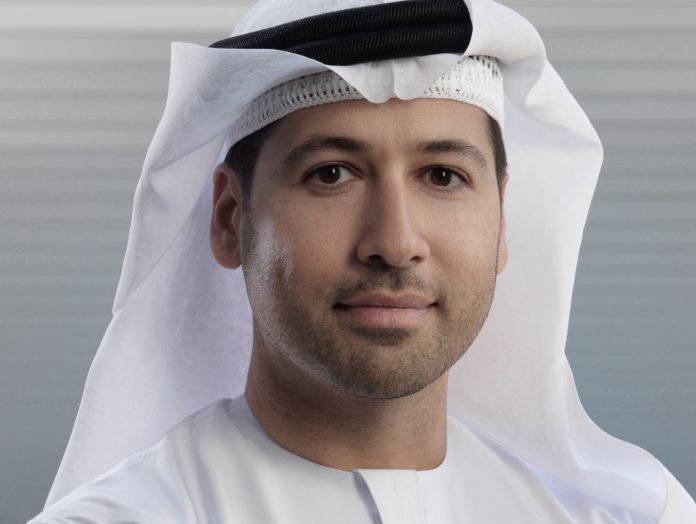Having successfully weathered the pandemic, DIFC is now gearing up to support FinTech companies in Dubai even more.
Dubai International Financial Centre (DIFC) is optimistic about the future, despite a pandemic raging across the world. Covid-19 has wreaked havoc on the global economy. Investors are understandably being cautious about which new ventures to put money their money into and some governments are still figuring out how to tackle the situation.
“Fortunately, DIFC has continued to attract new clients during the pandemic,” says Arif Amiri, CEO of DIFC Authority. “We are the most established, stable and innovative financial centre in the region. DIFC supported potential and existing clients with a stimulus package, which ensured that they were able to come back stronger following the pandemic’s peak. We are seeing financial services firms accelerate their digital agendas and regulators issuing innovative regimes. This provides an opportunity for FinTech businesses. During 2020, the value of investment in MENA FinTechs has also increased.”
In other words, despite the coronavirus crisis, DIFC has been able to build on the foundation that was put in place 16 years ago. The centre was set up in 2004 as part of the Emirate’s approach to economic diversification. “From that moment it quickly became the leading global financial centre in the Middle East, Africa and South Asia (MEASA) region,” Amiri explains.
“Setting up a financial centre in Dubai was a stroke of genius. It provides a bridge between the major financial centres of Asia and Europe and a sixth day of trading across markets. It also gives access to the fast growing markets of the Middle East, Africa and Asia using a platform that allows 100% foreign ownership, zero tax on profits, zero tax on income for employees and an independent English Common Law legal and regulatory framework based on global best practices.”
Since the initial launch, DIFC has grown into becoming the region’s largest financial ecosystem. Today, over 25,000 professionals work across more than 2,500 active registered firms. That includes technology businesses innovating in the financial space. “Since 2004 we have worked relentlessly to be at the forefront of financial innovation, especially in emerging markets,” Amiri explains. “Our vision now is to shape the future of finance. FinTech is a key component of this vision.”
DIFC first launched its FinTech Hive proposition in 2017. “It has led to Dubai being recognised as one of the world’s top ten FinTech hubs, and the leading financial innovation centre in the region,” Amiri says. Today, the FinTech ecosystem is made up of over 200 companies. “That is more than 50% of all FinTechs in the GCC,” he adds. “Over 80 new FinTechs have joined us in recent months, reflecting record growth. Leading international and regional FinTech companies continue to choose DIFC as their preferred jurisdiction to scale their business in the region. The centre continues to work with stakeholders both regionally and internationally to develop a robust and dynamic digital infrastructure and attractive FinTech ecosystem.”
And it is no mystery why that is. FinTechs looking to use Dubai as a launching pad for its Middle Eastern, African or South Asian expansion can benefit massively by linking up with DIFC. By doing so, they can tap into a proverbial treasure trove of support. For example, startups in the sector can sign up to join the many accelerator and incubator programmes run in Dubai. DIFC has developed them with partners such as Startupbootcamp, the legendary network of startup accelerators.
“I must say that the DIFC FinTech Hive is home to MEASA’s first and largest financial technology accelerator,” says Amiri. “It gives FinTechs, InsurTechs, RegTechs and Islamic FinTechs access to mentorship and expertise. Participants and other FinTech firms globally who have created a unique solution and generating revenue can also apply for funding from the DIFC FinTech Fund. The centre is also home to venture capital businesses who are looking to make investments. These venture capital firms represent a number of Limited Partners who are keen to invest.”
All these benefits can be accessed in the DIFC’s Innovation hub. “It is the only place in the region where complementary businesses, regulators, mentors and funders get to work side by side. We believe this collaborative way of working is going to be a model for other financial centres in time. It is a conducive way for businesses to drive the future of finance,” he says.
And more is to come. “Next year, Nasdaq Dubai which is one of our clients, is launching a Growth Market Listing,” says Amiri. “It will provide SMEs with an option to list their company cost effectively. I hope that in time some of our FinTech SMEs will list themselves on the Growth Market.”
Having already made significant accomplishments since launching in 2004, DIFC is now gearing up to leverage the momentum of recent growth. “We will be introducing several signature initiatives soon,” Amiri says. “These will include providing academic and executive education through the DIFC Academy for skills that will contribute to the future economy.”
DIFC has been chosen by Mastercard as a global launch pad for its Global Cyber Programme. “DIFC, the DFSA and Mastercard will launch the new Global Cyber Forward programme from the UAE. The partnership will advance policy, regulations and standards in cybersecurity. Mastercard will also develop their region cyber security capabilities from DIFC. The programme will also enable effective cyber security oversight through the DFSA Threat Intelligence Platform (TIP) that was launched in January 2020.”
“Additionally, we will continue encouraging FinTech startups to look to the future. Currently, many FinTech solutions address existing challenges that make organisations more efficient or provide alternative ways of consuming financial products. DIFC, along with the world’s top financial centres, central banks and consultants believe that the next big FinTechs will be those who identify use cases for issues that do not exist yet. Ultimately, they will help consumers and companies identify solutions with things that they currently do not even know they need. This is where DIFC and FinTechs can make the biggest contribution to the future of finance.”
Copyright © 2020 FinTech Global
Copyright © 2018 RegTech Analyst






